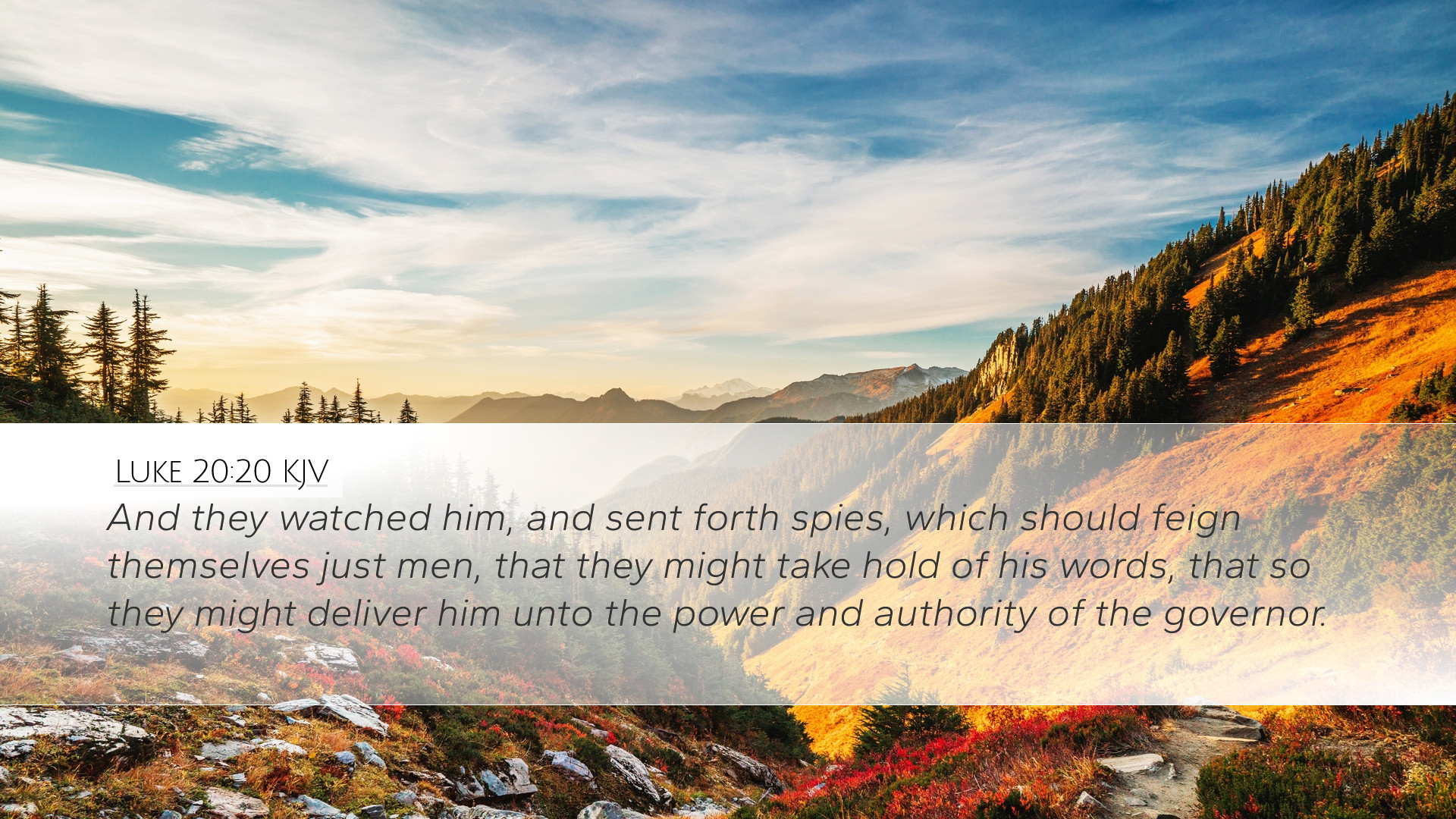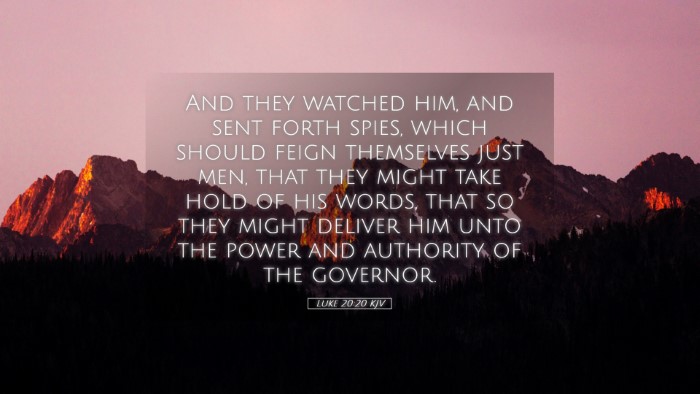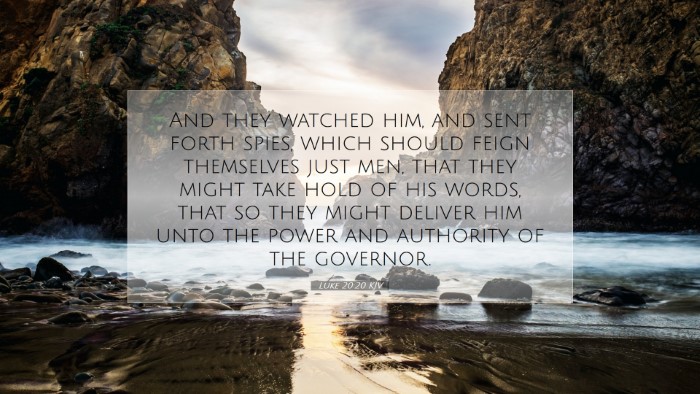Commentary on Luke 20:20
Verse Text: "So they watched Him and sent spies who pretended to be righteous, that they might seize on His words, in order to deliver Him to the governor." (Luke 20:20)
Introduction
The context of Luke 20:20 involves the increasing tension between Jesus and the religious leaders of His day. This verse directly follows the Parable of the Wicked Vinedressers, where Jesus openly challenges the authority and intentions of the religious elite. The verse exemplifies the stratagems employed by these leaders, revealing their deep-seated desire to undermine Jesus’ ministry.
Examination of the Verse
Contextual Background
As we delve into this passage, it is essential to consider the broader narrative of Luke's Gospel. Jesus had become a profoundly influential figure, culminating in substantial popularity among the masses. This popularity incited fierce jealousy and opposition from the Jewish authorities.
Observations from Commentaries
-
Matthew Henry’s Commentary
Matthew Henry emphasizes the meticulous planning of the Pharisees as they seek to discredit Jesus. The phrase "watched Him" indicates their diligent efforts to catch Him in a statement that could be leveraged against Him. They employed deception because their hearts were set against Him, illustrating their moral corruption and unwillingness to embrace the truth.
-
Albert Barnes' Notes
Barnes highlights the insidious nature of the spies sent to watch Jesus. They feigned righteousness, pretending to be sincere followers of the law, but their true intent was sinister. Barnes asserts that this illustrates a broader principle: those who seek to trap the innocent often disguise their true motives behind a veneer of piety.
-
Adam Clarke’s Commentary
Clarke elaborates on the idea that the term "spies" not only indicates surveillance but also suggests a plot, a deliberate scheme to entangle Jesus in His words. Clarke posits that their methodology reflects a larger theme in the narrative—a rejection of the divine authority that Jesus represents. The governor mentioned refers to the Roman authority reflecting an attempt to link Jesus' teachings with political insurrection.
Theological Insights
A deeper theological reflection on Luke 20:20 surfaces several pivotal themes relevant to scholars and theologians:
-
The Nature of Opposition:
This verse vividly presents the reality of opposition to God’s messengers. The portrayal of the spies reluctant to confront Jesus openly invites reflections on how similar tactics might exist today in contemporary contexts.
-
The Deceptive Nature of False Piety:
The deception exhibited by the Pharisees—playing the role of virtue while plotting evil—serves as a cautionary tale about the dangers of superficial religion devoid of genuine righteousness.
-
Authority and Accountability:
The involvement of civil authority (the governor) emphasizes Jesus’ role not just as a religious figure but as one engaged in the larger narrative of justice, morality, and accountability before both divine and human law.
Application for Today’s Believers
As pastors and theologians reflect on this verse, several applications emerge:
-
Awareness of Spiritual Warfare:
Understanding that opposition to Christ often manifests through subtle and calculated schemes encourages believers to remain vigilant in their faith and ministry.
-
Call for Integrity:
This passage serves as a reminder to avoid duplicity in faith. Believers are called to embody sincerity and truth in their walk with Christ, resisting any temptation to masquerade motives under false pretenses.
-
Engagement with Culture:
In an age where the church finds itself at odds with prevailing cultural narratives, Luke 20:20 calls for thoughtful engagement rather than retreat. Just as Jesus faced scrutiny, modern believers are called to both stand firm in their convictions and navigate societal pressures with grace and wisdom.
Conclusion
In Luke 20:20, we find a powerful reminder of the challenges faced by Jesus and, by extension, His followers. The tactics of the religious leaders serve to unveil the complexities of faithfulness in a hostile world. As we study and reflect upon this passage, we are called to cultivate sincere hearts, embrace our roles as ambassadors of Christ, and engage with both truth and integrity amidst opposition.


